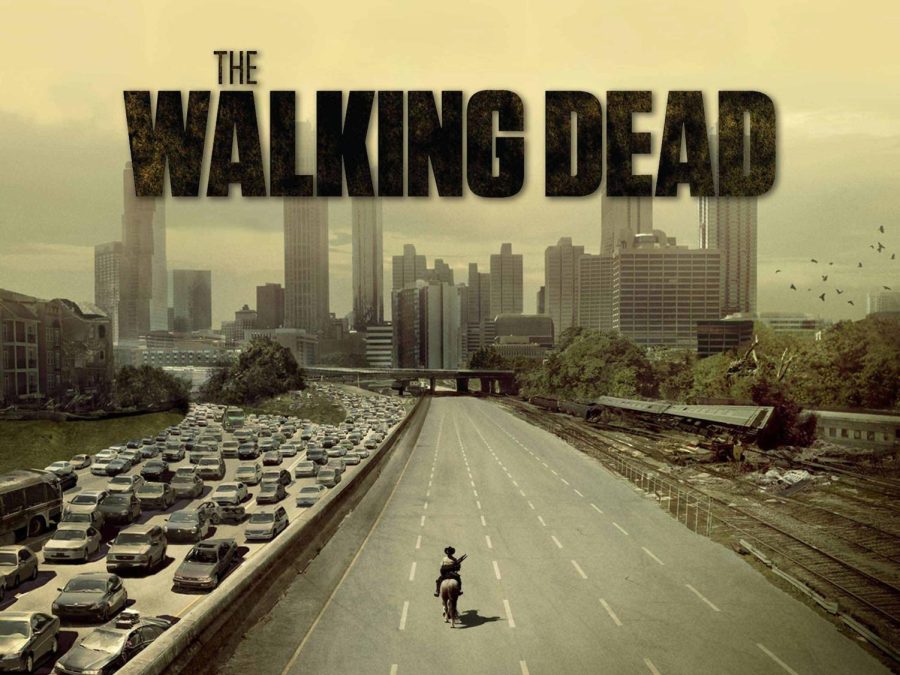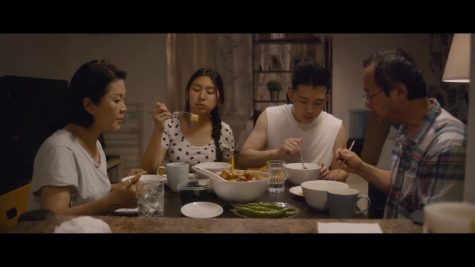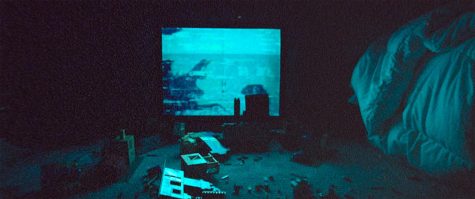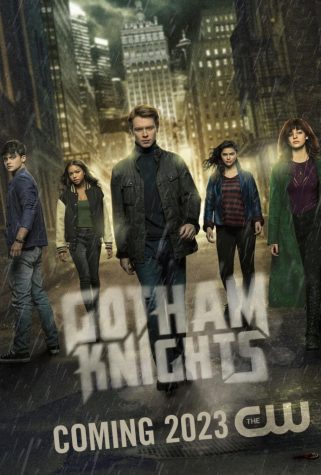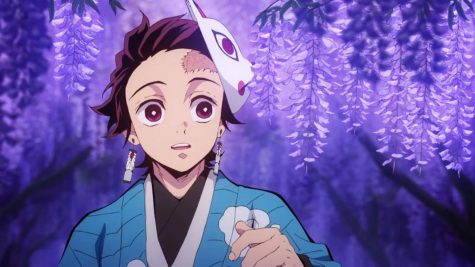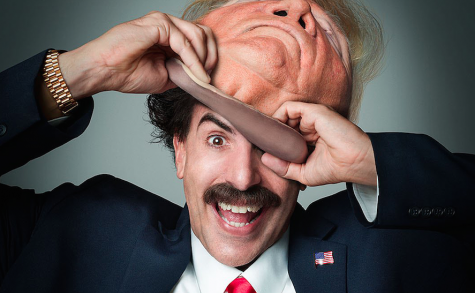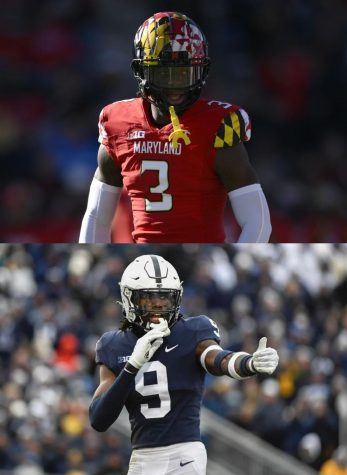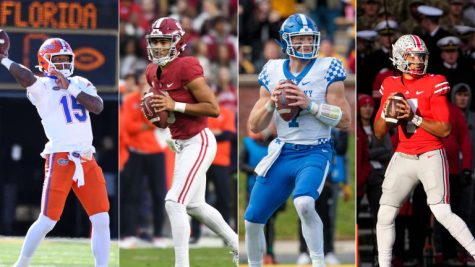I love Zombie Content yet I have never seen ‘The Walking Dead’, till now
I am currently on season six of The Walking Dead, so right about the middle portion of the 11 season series.
Before even considering watching “The Walking Dead,” I was already watching newer zombie shows or movies on Netflix that had their influences come from the successful long-running franchise.
*Spoiler Warning, the other zombie movies or series I mention will have mild spoilers, only for the synopsis mostly or the beginning of the film, but I will be talking about some of the main highlights of “The Walking Dead” up until season six later at the end of the article.
I wasn’t always into the zombie genre and I didn’t know it was really a thing till a few years ago. Or at least I never sought out those types of movies.
“Zombieland” was the first zombie-oriented movie I watched when I was in middle school, but I never took it too seriously. Thinking about it now, I treat the “Zombieland” franchise sort of differently than the traditional zombie film, sort of like a romantic comedy but just replacing the slice of life and romance elements with zombies or monsters.
For an Understanding Movies class here at Mercy College, I got to watch “Shaun of the Dead,” as it was a fun watch with the editing style used by director Edgar Wright in a 2004 classic, as it came out five years prior to the first “Zombieland” in 2009. Nearly ten years later, director Ruben Fleischer, who also directed the original, directed its sequel in 2019, “Zombieland: Double Tap”.
There are some jump-scare moments, but I don’t really consider those movies in the horror genre and while they are enjoyable while being great films, it wasn’t what I was looking for at the time.
Another zombie movie franchise that I got to watch around that time after seeing “Shaun of the Dead” was 2002’s “28 Days Later” followed by its sequel that came out five years later, 2007’s “28 Weeks Later”.
With two different directors directing the original, Danny Boyle, and then its sequel with Juan Carlos Fresnadillo, I was unsure how I would feel about the films but they turned out to be one of the better examples of pure horror using zombies.
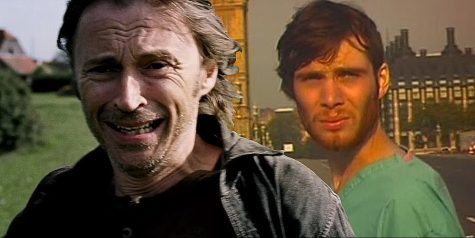
I do prefer the first film over the sequel, as the beginning nearly reminisces AMC’s “Walking Dead” start to its series, as we see the main character Jim (Cillian Murphy) walk through the abandoned streets of London, as Rick Grimes (Andrew Lincoln) in “The Walking Dead” does something similar, with both of them coming out of the hospitals suffering comas and oblivious to their situations of either man-eating zombies or rabid rage filled civilians.
The second film is more intense and the budget is way more compared to the first movie, as it starts off with an amazing chase scene that I’m pretty sure is one of the more iconic introductions to a zombie film. Both movies have pretty notable actors/actresses, like Murphy in the first movie back in 2002 before he had his major breakthrough.
But the sequel, unlike the first movie, doesn’t really feature a singular main character as the lead but prominent actors/actresses Jeremy Renner, Rose Byrne, Idris Elba, and Harold Perrineau played notable roles in this film before they really blew up even more in the movie industry in 2007.
The main plot of both films is pretty simple but contained as its own thing, as we see what various and unrelated characters go through with the timeline of the Rage virus and how the government/people react to the situation.
Speaking of random people meeting each other through post-apocalyptic means, the Netflix series “Black Summer,” is pretty much that in its premise, along with its second season. There are ties to another zombie series, “Z-Nation,” but both seasons of “Black Summer” are standalone seasons in relation to “Z-Nation”.
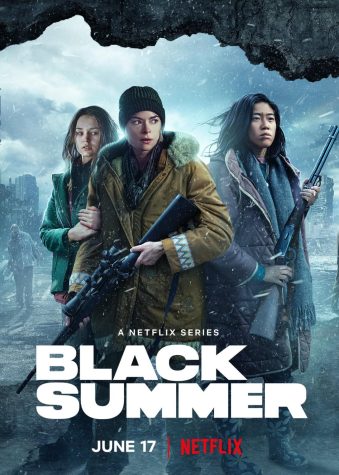
“Black Summer” had an interesting way of structuring the storyline, one I haven’t seen before, or at least, a way that I haven’t seen many movies or shows attempt.
When the audience follows a certain person’s viewpoint in a situation, like a chapter title of a book, it would name the section after that character with a title screen. Even if it is the same occurrence going on, we see different perspectives of the same event, as there are many things going on simultaneously.
Other than the lead Jaime King as Rose, it was mostly just a conglomerate of people that meet up with a singular goal to get to a place that could be a safe haven from the zombies. A few of them are together at times, but usually, they are split up in various situations that are more unsettling, at times, than other zombie movies or series for one reason or another.
But this ultimately led me to a completely different genre and language.
Korean dramas or K-dramas were something I was never into, yet when I gave a few of them a chance (the ones I am going to mention) on Netflix, I was surprised at how well they blend different genres together and made them unique enough to not be a rehash of something that already came out.
After watching a few, I think the South Korean film and television industry somehow nails horror and drama together in a way that separates itself from the rest.
The zombie genre meshed in with K-dramas has to start with 2016’s “Train to Busan” film, as it is considered one of the better international zombie movies to come out by those who have seen it. At the time, it was the first of its kind to really blow up and receive global praise as a classic zombie flick.
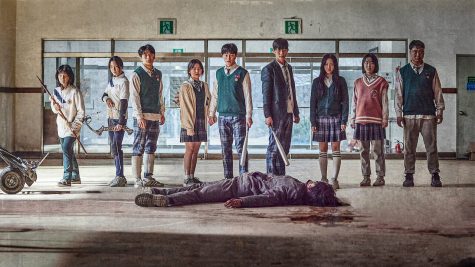
The reason I actually came up with even talking about zombie movies or series was right after I finished rewatching “All of Us Are Dead” due to season two coming out sometime this year or next, I decided to pick up “The Walking Dead”.
I think among my recommendations, “All of Us Are Dead” is a compelling story based on a Webtoon comic, as it came out in 2022. While it wasn’t perfect, the conflicts the students have to go through are pretty crazy and the main cast of high schoolers sell it, as there are realistic comedic moments and conversations that make it even better to break up some tension. Plus, the film “Train to Busan” is referenced, so the students are more aware of what a zombie is and what is at stake.
I also thought the way the infection starts was very unique, as the zombie category in general usually has a formula with character tropes and plot points that are similar to each other. However, the way the infection or virus spreads, along with the types of zombies the characters deal with, and the characters themselves (and the conflicts between people) usually sells me on zombie movies or series and this one did.
Another show I am looking forward to watching is “The Last of Us,” as it currently airing and has a few episodes out. From the look of it, I didn’t think it would be a zombie show but apparently, it is, or at least, has monsters that are similar. According to Mercy Impact Staff writer Joshua Ochoa Diaz, the HBO series is ‘riveting’, as his detailed review of the show does contain spoilers.
Other zombie or monster series and movies on Netflix that are K-dramas include “Kingdom,” which has two seasons, “Sweet Home,” which has one season and another incoming sometime this year or next, and “#Alive,” which is a modern take on the zombie genre that came out in 2020.
“Kingdom” is a historical take on a zombie plague occurring and “Sweet Home” deals with monsters instead of zombies, as both are based on Webtoon comics and came out in 2020.
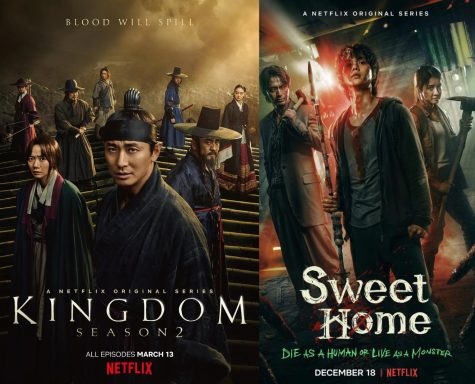
While I still like those shows and films, watching “The Walking Dead” after the fact helps me acknowledge and appreciate what this series did for the genre at the time.
I had always heard about it but didn’t pick it up till this past year. Although I have heard that it gets worse in the later seasons, I really thought the first few were memorable and enjoyable.
It reminded me of the long-running series, “Lost,” and even though it is a completely different type of show, the survival aspect is something they both share and reflect through their massive cast of characters, who also stand out (for the most part).
The first season is definitely the slowest but that’s due to setting up the story, characters, and the different settings the series showcases. While the farm portion is good, the prison and the fight against the Governor of Woodbury (played by David Morrissey0 are the most intense scenes from seasons two through four.
Seasons five and six at Alexandria were also intense, as most of the main characters show a tremendous amount of growth but still try to handle problems the only way they know how. This backfires on our main group, as they meet someone in charge of a much bigger mob of people, even more than the Governor, with the introduction to the real Negan (played by James Dean Morgan).
The way they handled Glenn’s almost death in season six when he was on top of the dumpster was shocking and twisted, yet brilliant in how it was set up. It did annoy me when they dived into Morgan’s backstory (played by Lennie James) to then reveal later that instead of Glenn getting bitten, it was Nick (played by Michael Traynor), who was with him and committed suicide by shooting himself, dragging Glenn with him. Glenn, played by Steven Yeun, almost dies so many times but this one was the most convincing, as one of the episodes left on a cliffhanger with him underneath the dead body of Nick, but positioned and shot in a way you wouldn’t be able to tell.
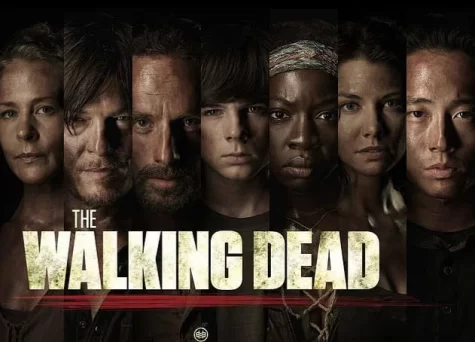
After finishing season six with that cliffhanger of Negan capturing Rick (Andrew Lincoln) and the group, I am very curious to know who Negan kills as the sacrifice. Even though it continues for five more seasons, at least the original story with these characters, I thought it was a good middle ground to stop at, as this is the first time the main cast has been stimied by another group this badly, from what I know at least. There also hasn’t been a character to best Rick, as the Governor and others did some hefty damage to the group, but Rick ultimately was able to complete the mission and escape with some casualties at the very least.
I hope my judgment of the show isn’t swayed too badly by later seasons if it is as bad as I hear, as I think sometimes it is best to conclude things rather than drag them out. Still, I will at least complete the eleven seasons eventually, as this is the biggest zombie franchise to date and has been for a while, with a plethora of games and spin-off series. This sounds cliche but I think it is applicable to “The Walking Dead,” ‘the journey is more important than the destination’.
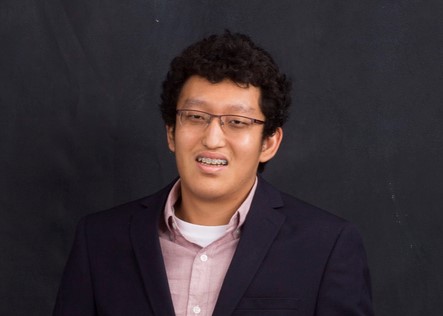
Andrew Kim is a senior majoring in Journalism. Transferring and switching majors a few years ago was a big risk but it has been well worth it so far. Andrew...



